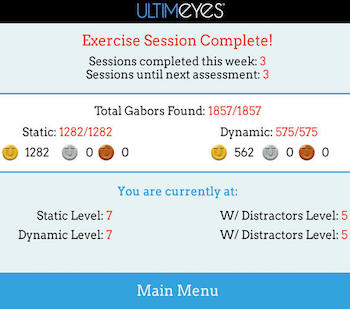 About five months after the Federal Trade Commission (FTC) first charged the marketers of a vision improvement app, called UltimEyes, with deceptively claiming their program was scientifically proven to improve the user's eye sight, the FTC has approved a final consent order that requires the company to stop making these claims.
About five months after the Federal Trade Commission (FTC) first charged the marketers of a vision improvement app, called UltimEyes, with deceptively claiming their program was scientifically proven to improve the user's eye sight, the FTC has approved a final consent order that requires the company to stop making these claims.
Carrot Neurotechnology, the company behind the UltimEyes, charges $9.99 for its vision improvement app, up from $5.99 a few months ago. The app is available on a variety of platforms including iOS, Android, and Windows.
After Carrot was charged in September, the FTC held a public comment period, and received 77 comments, some that came from experts and researchers in perceptual learning. The FTC reviewed the public comments and the commission then voted 4-0 to approve the order.
In the final consent order, the FTC said Carrot and its co-owners Adam Goldberg and Aaron Seitz are required to have “competent and reliable scientific evidence” before they can make the vision claims that the FTC challenged. Carrot and its owners are also required to pay $150,000 and disclose any connections they have with anyone who is participating in or conducting research that is substantiating Carrot’s claims.
Among the app maker's deceptive claims highlighted by the FTC: the app would "turn back the clock on your vision" and its users would benefit from "comprehensive vision improvement" for sports, reading and driving.
UltimEyes is the fifth health-related app to have the FTC file charges of deceptive claims against it, but it is the only one not to shut down as a result. In February the FTC made similar moves against the owners and marketers of two skin cancer-related apps -- Mole Detective and MelApp. Back in 2011 it went after two acne apps, AcneApp and Acne Pwner.
















